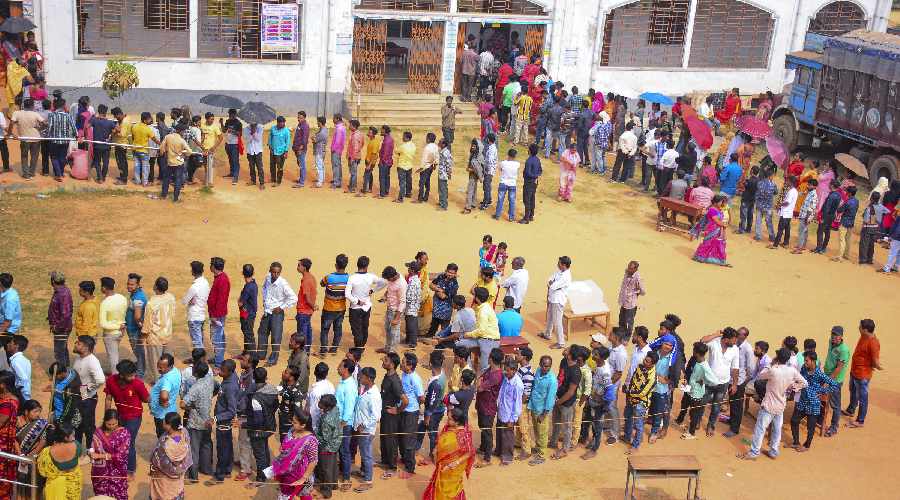The electorate in Tripura — the state went to polls on Thursday — is, for once, spoilt for choice. This is because the assembly election on this particular occasion is a three-way race. The ruling Bharatiya Janata Party, which ended the Left Front’s rule in 2018 with a dominating performance, would certainly want to replicate its success. Confronting it is the combined might of the Communist Party of India (Marxist) and the Congress — the two traditional rivals have entered into an alliance in the hope of emulating the success of the Grand Alliance in Bihar. But the newest and, arguably, the most interesting contestant in the fray would be the Tipraha Indigenous Progressive Regional Alliance led by the former scion, Pradyot Kishore Debbarma. Mr Debbarma — he has described the Tripura Tribal Areas Autonomous District Council as toothless — is in favour of far greater autonomy and representation for Tripura’s indigenous population which, the Tipra Motha argues, has been relegated to the margins. The BJP, which has the Indigenous People’s Front of Tripura as its ally, would be especially mindful about the potential fragmentation in the support base for the coalition among the tribal population as a result of the rise in the Tipra Motha’s popularity.
Whatever the outcome of the polls, whichever party ends up winning power would have to confront — and overcome — some formidable challenges. Tripura, like Bengal, has been particularly vulnerable to the culture of political violence. Sporadic violence was reported on polling day in spite of the presence of security forces. Steps must be taken to ensure that retributive violence does not spread once the results are out. This is all the more important given Tripura’s strategic location as a border state. Another impending challenge would be to bridge the increasing social chasm on the basis of identity. Tripura’s indigenous people have, for long, been aggrieved about the demographic transitions that have allegedly led to the dominance of ‘outsiders’. These cleavages have been the fodder for fractious politics. Irrespective of the direction of the poll wind, it is imperative that political parties take up the responsibility of bridging these fault lines. The way out, as is usually the case, would be the pursuit of inclusive welfare policies. If this — rather utopian goal — is met Tripura could set an important precedent in national politics.










